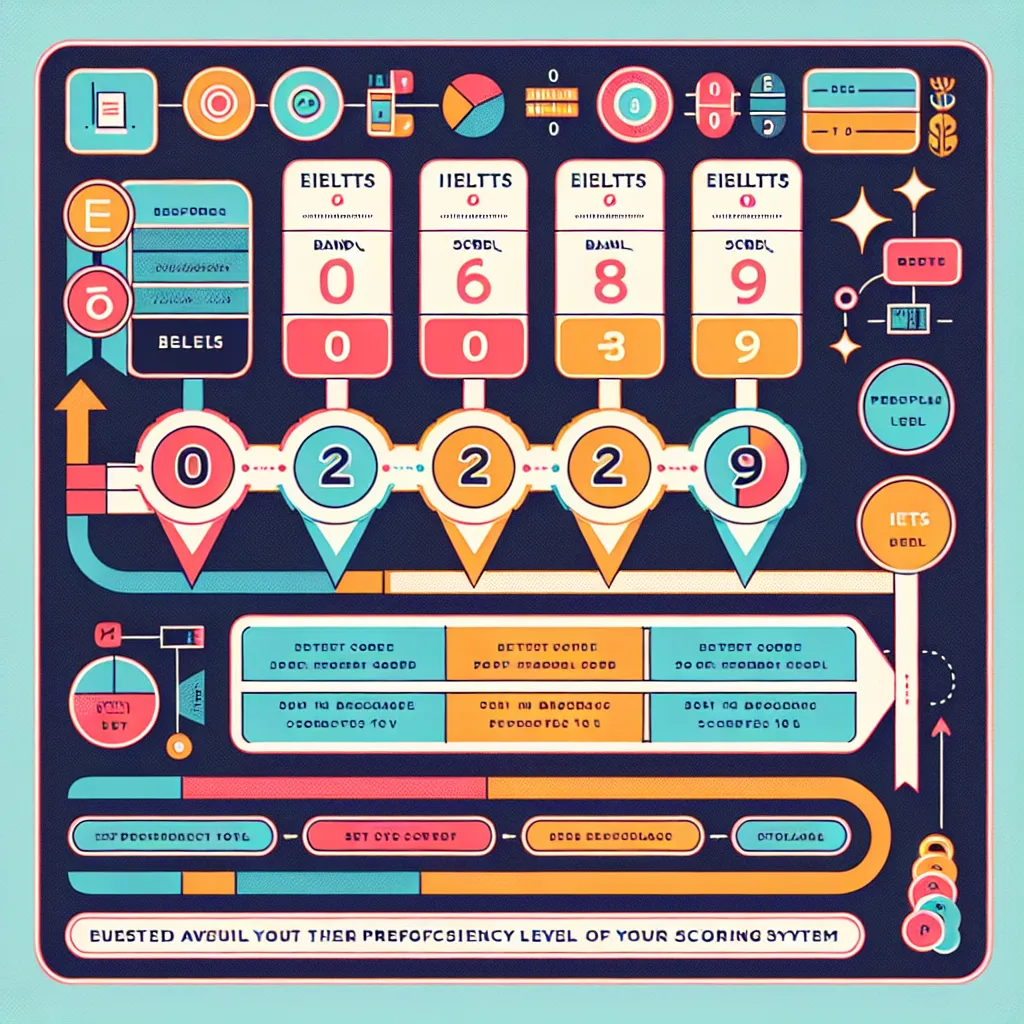Are you preparing for the IELTS exam and wondering how your performance will be evaluated? Understanding how to calculate your IELTS band score is crucial for setting realistic goals and tracking your progress. In this comprehensive guide, we’ll break down the scoring system and provide you with the tools to estimate your overall band score accurately.
Understanding the IELTS Band Score System
The IELTS band score system ranges from 0 to 9, with 9 being the highest possible score. Each of the four sections of the IELTS test (Listening, Reading, Writing, and Speaking) is scored individually, and then an overall band score is calculated based on the average of these four scores.

IELTS Band Descriptors
Here’s a brief overview of what each band score represents:
- Band 9: Expert user
- Band 8: Very good user
- Band 7: Good user
- Band 6: Competent user
- Band 5: Modest user
- Band 4: Limited user
- Band 3: Extremely limited user
- Band 2: Intermittent user
- Band 1: Non-user
- Band 0: Did not attempt the test
Calculating Individual Section Scores
Before we can determine the overall band score, we need to understand how each section is scored. Let’s break it down:
Listening and Reading Sections
For the Listening and Reading sections, your raw score (the number of correct answers) is converted to a band score. Here’s a general guideline:
-
Listening (40 questions):
- 39-40 correct = Band 9
- 37-38 correct = Band 8.5
- 35-36 correct = Band 8
- 32-34 correct = Band 7.5
(and so on)
-
Reading (40 questions for Academic, 40 questions for General Training):
-
Academic:
- 39-40 correct = Band 9
- 37-38 correct = Band 8.5
- 35-36 correct = Band 8
- 33-34 correct = Band 7.5
(and so on)
-
General Training:
- 40 correct = Band 9
- 39 correct = Band 8.5
- 37-38 correct = Band 8
- 36 correct = Band 7.5
(and so on)
-
Writing and Speaking Sections
The Writing and Speaking sections are assessed by trained examiners using specific assessment criteria. These criteria include:
- Task Achievement (Writing) / Task Response (Speaking)
- Coherence and Cohesion
- Lexical Resource
- Grammatical Range and Accuracy
Examiners assign a band score for each criterion, and then an overall band score is calculated for each section.
Calculating Your Overall IELTS Band Score
To calculate your overall IELTS band score, follow these steps:
- Obtain your individual band scores for each section (Listening, Reading, Writing, and Speaking).
- Add these four scores together.
- Divide the total by 4 to get the average.
- Round the average to the nearest 0.5 or whole band score.
Here’s an example:
- Listening: 7.5
- Reading: 6.5
- Writing: 6.0
- Speaking: 7.0
Total: 7.5 + 6.5 + 6.0 + 7.0 = 27
Average: 27 ÷ 4 = 6.75
Rounded overall band score: 7.0
Important Considerations
When calculating your IELTS band score, keep these points in mind:
-
Official scores may vary slightly from your calculations due to precise scoring methods used by IELTS examiners.
-
The overall band score is rounded to the nearest 0.5 or whole band. For example, 6.25 would be rounded down to 6.0, while 6.75 would be rounded up to 7.0.
-
Some institutions or organizations may have specific requirements for individual section scores in addition to the overall band score.
-
Practice tests can help you estimate your band score, but remember that official IELTS exams are the most accurate measure of your English proficiency.
Tips for Improving Your IELTS Band Score
Now that you understand how the IELTS band score is calculated, here are some tips to help you improve your performance:
-
Practice regularly: Consistent practice across all four sections is key to improvement.
-
Focus on weak areas: Identify your weakest sections and dedicate extra time to improving them.
-
Use official IELTS materials: Familiarize yourself with the test format and question types using authentic IELTS resources.
-
Time management: Practice under timed conditions to improve your speed and efficiency.
-
Expand your vocabulary: A rich vocabulary can boost your scores in all sections, especially Writing and Speaking.
-
Seek feedback: Work with a tutor or join study groups to get constructive feedback on your performance.
-
Take mock tests: Regular mock tests will help you track your progress and identify areas for improvement.
Conclusion
Understanding how to calculate your IELTS band score is an essential part of your test preparation. By knowing how the scoring system works, you can set realistic goals, track your progress, and focus your efforts on areas that need improvement. Remember, consistent practice and a strategic approach to learning are key to achieving your desired IELTS band score. Keep working hard, and you’ll be well on your way to success in your IELTS journey!